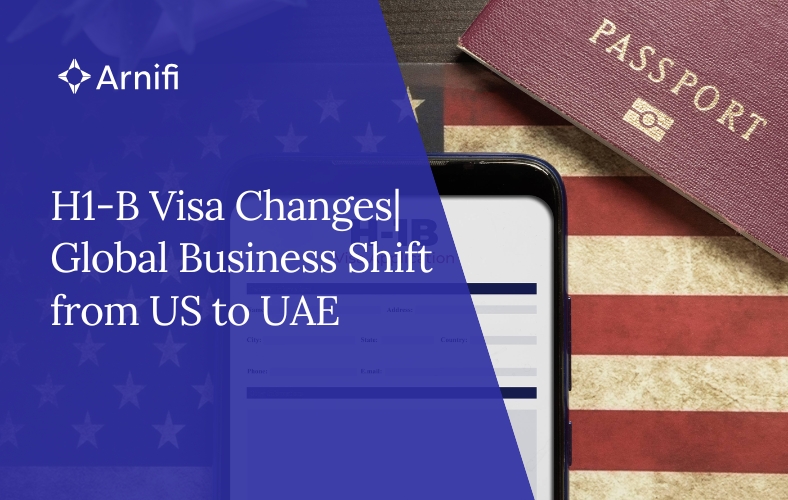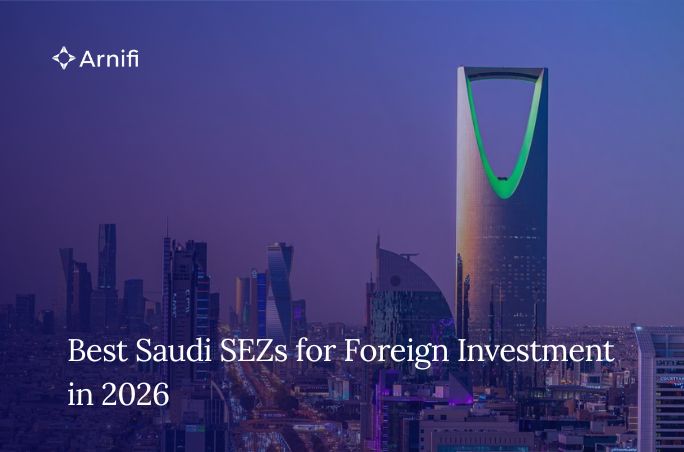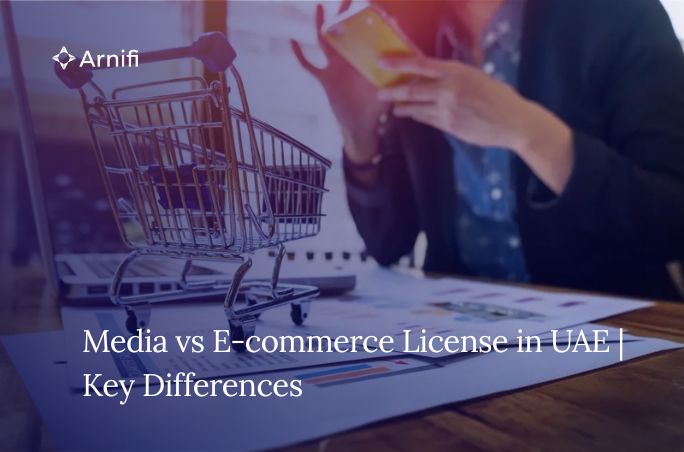H1-B Visa Changes | Insights on the Global Business Shift from the US to the UAE
by Rifa S Laskar Sep 24, 2025  8 MIN READ
8 MIN READ

The changes in H1-B visa aren’t just a shift in the U.S. policy; it’s a clear signal to global talent and businesses that the rules around where you base your operations are constantly evolving so if you’ve been relying on the U.S. for growth, now’s the moment is to reconsider with the UAE as its emerging as a leading option for setting up a business as its attracting skilled professionals & creating stability in uncertain times.
Table of contents
- 1. Introduction
- 2. The Ripple Effect of H1-B Visa Changes
- 3. The UAE as a Strategic Alternative
- 4. Industries Likely to Pivot to the UAE
- 5. Educational Shifts | Students and Talent Choosing the UAE
- 6. Geopolitics and Diplomacy in Play
- 7. Advantages of Moving Business to the UAE
- 8. Challenges to Consider
- 9. Conclusion
1. Introduction
The H1-B visa changes are bringing modifications to how the U.S. handles work permits for foreign professionals. If you’re an Indian engineer, designer, researcher or manager, these changes can affect you. If you’re a startup or tech firm in India or elsewhere that depends on U.S. markets, this matters too.
Because the U.S. has recently introduced higher fees, changed lottery odds & tightened eligibility rules, the cost (monetary and strategic) of having an H1-B visa has increased. That makes hiring, retaining, or planning a long career in the U.S. much riskier. Because what this really means is that some strategies built for a U.S. base may now tilt in favour of alternatives. One such alternative is the UAE. This article will give you a detailed take on it.
2. The Ripple Effect of H1-B Visa Changes
The H1-B visa changes are creating ripple effects that businesses can’t ignore. It has higher application and renewal fees, so companies are now facing rising overheads that directly hit startups, consultancies & tech-driven firms. This adds to the tighter competition or stricter caps, tougher scrutiny & even highly qualified candidates risk rejection, making the odds increasingly unfavourable. For organizations whose growth relies on bringing in developers, data scientists or domain specialists, the talent pipeline is now fragile & delays or denials can disrupt entire product roadmaps. This uncertainty makes long-term planning risky & it leaves firms to question whether betting on U.S. expansion is still a good strategy. What this really means is that global businesses that are especially in tech must seriously analyse if building their future around the U.S. remains worth the effort
To help with global business expansion
make sure you choose us.
Get in touch with our team to find out about our approach
BOOK FREE CONSULTATIONResponse within 24 Hours
Great, please give us a brief detail about your business.
3. The UAE as a Strategic Alternative
Here’s why more leaders are eyeballing the UAE right now:
- Tax friendliness- Corporate taxes are low & the capital gains and personal income tax are often negligible.
- Top-tier infrastructure- The UAE has world-class infrastructure, be it offices, data centres, transport, connectivity. The UAE competes with the best in the world.
- Global connectivity- It’s a hub between Asia, Europe & Africa, from flights, logistics & communication, you’ll stay intact with global networks.
- Faster business set-ups- In many Emirates and free zones, registration, licensing & incorporation take days or weeks & not months.
- Visa and residency options- Golden Visas, investor visas, employee visas & the framework is evolving to attract global talent.
- Quality of life & expat ecosystem- UAE maintains an international standard for the schools, healthcare & housing, also for the professionals relocating, the lifestyle adapts better.
So, when you hear H1-B visa changes, think about how much more friction the U.S. remains compared to the UAE base. The UAE gives you less friction, more optionality.
4. Industries Likely to Pivot to the UAE
| Industry | Why They’re Likely to Pivot | UAE Advantage |
| Tech Startups & IT Services | Cloud solutions, software development & AI-driven products depend on skilled professionals who can work across borders. U.S. visa barriers are rising & firms need reliable hubs where talent movement is easier. | The UAE offers credibility as a global tech hub, fast business setup processes & proximity to emerging markets in Asia, Africa & the Middle East. This combination reduces friction and supports agile scaling. |
| Financial Services & Fintech | Banks and other payment providers & fintech innovators require cross-border regulatory and fast integration with diverse markets. U.S. policy uncertainty can stall innovation and expansion. | The UAE is actively building sandbox regimes and progressive financial regulations that enables fintechs to scale & serve MENA, South Asia and also Africa with fewer roadblocks. |
| Healthcare & Biotech | Sectors like digital health, biotech R&D & clinical trials need strong infrastructure, funding support & international collaboration. U.S. visa hurdles can disrupt research teams and project continuity. | The UAE provides advanced healthcare infrastructure & funding opportunities & a neutral base where global research teams can collaborate seamlessly without the bottlenecks of U.S. immigration. |
| Education & Training Institutes | Many students and professionals are rethinking U.S. study plans, and universities & any other training providers need alternative destinations to deliver global-standard education. | The UAE is attracting leading global campuses like NYU Abu Dhabi and Middlesex University Dubai. Its education sector is gaining attraction as students prefer regional study options that connect them directly to global employers. |
5. Educational Shifts | Students and Talent Choosing the UAE
Because of the H1-B visa changes, many students are now pausing before committing to a U.S. education plan. Instead-
- UAE universities & global campuses
NYU Abu Dhabi, NYUAD & Middlesex University Dubai they’re gaining prestige & are providing international degrees locally - Retaining talent in the region
Many decide that chasing U.S. is not worth it & if I can build a career from the Gulf & work remotely or join regional firms which has global reach is better - Internships & co-ops
UAE firms that are regional multinationals and branches create more roles for high-skill graduates, which is reducing the push to emigrate.
To help with global business expansion
make sure you choose us.
Get in touch with our team to find out about our approach
BOOK FREE CONSULTATIONResponse within 24 Hours
Great, please give us a brief detail about your business.
6. Geopolitics and Diplomacy in Play
- The U.S. is tightening its immigration policy as part of its domestic priorities. That’s understandable in their context.
- The UAE is positioning itself as a non-aligned gateway for East meets West. It doesn’t carry the same baggage.
- Over time, the UAE is betting on being a neutral hub; they’re also inviting investment, talent & cooperation across blocs.
- That diplomatic attitude gives confidence to companies that may otherwise fear being seen as tied to a particular geopolitical area.
So yes, H1-B visa changes in the U.S. are partly policy, partly posture. The UAE offers as a greater alternative posture.
7. Advantages of Moving Business to the UAE
- Business regulations are pro-entrepreneur
The UAE’s free zones allow 100% foreign ownership, as well as very straightforward incorporation & supportive legal frameworks that simplify company formation and growth. - Strategic location
Positioned between Asia, Europe & Africa, the UAE provides unmatched connectivity, logistics strength & an ideal time zone for global business operations. - Attractive visa programs
Long-term Golden Visas, investor permits & employee sponsorships make it easier for founders, families & teams to relocate and thrive. - Expats feel at home
UAE has International schools, housing, healthcare & diverse communities. The UAE provides comfort and familiarity for global professionals and their families. - Cost predictability
Compared to volatile U.S. visa policies and rising fees, the UAE offers businesses clearer & stable costs for expansion and workforce planning.
8. Challenges to Consider
- Cultural & regulatory adaptation
Businesses must navigate local norms, legal frameworks & governance structures that ensure operations that meet the UAE rules while respecting cultural expectations. - Competitive local market
Established regional companies have deep market knowledge, networks & customer trust that make it essential to differentiate and prove your value quickly. - Visa & licensing costs
Having permits, licenses & sponsorships requires investment, though overall the bureaucracy remains less burdensome than the unpredictable U.S. immigration processes. - Talent supply constraints
Certain specialized roles may have limited local candidates which require global recruitment strategies to secure the right expertise easily. - Perception & market access
Some clients still prioritize U.S. presence, so UAE-based companies must position operations strategically to maintain credibility and attract global business.
9. Conclusion
H1-B visa changes may feel like a setback if your focus has been on the U.S., but that doesn’t stop progress. What this really means is the global map is shifting. The UAE is emerging as a strong, strategic base for growth, innovation & attracting top talent by offering stability and opportunity that’s increasingly hard to find elsewhere.
For businesses and professionals navigating this transition, strong support matters. Working with a partner who understands both U.S. and UAE regulations can simplify setup, visas & licensing & help you turn uncertainty into a clear advantage. Arnifi helps simplify the move so you can focus on your core mission. Let’s turn uncertainty into your advantage. Contact us to explore your move to the UAE.
Top UAE Packages

Related Articles
Top UAE Packages



